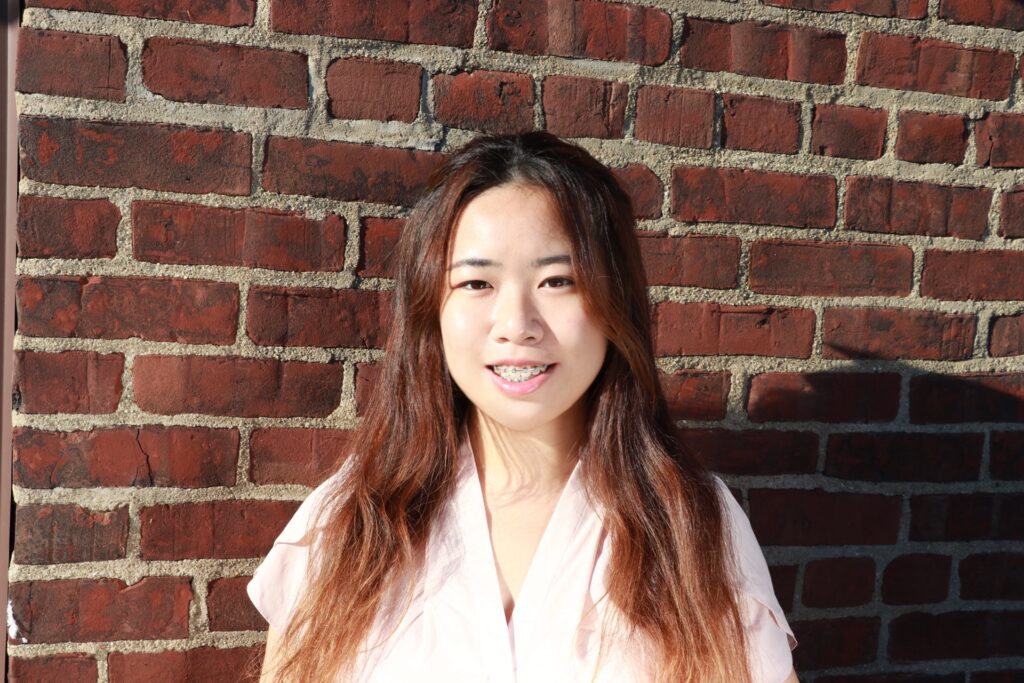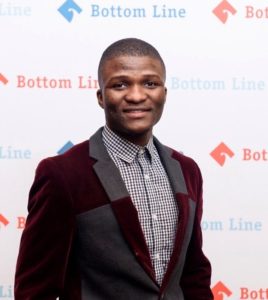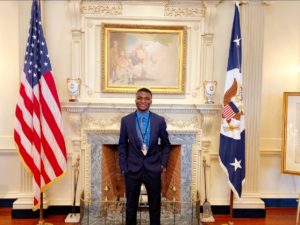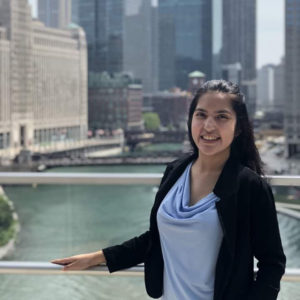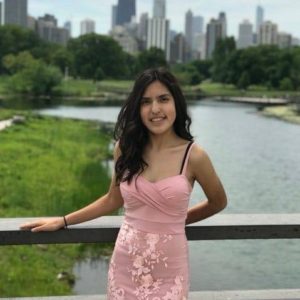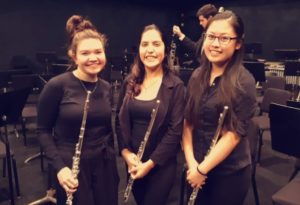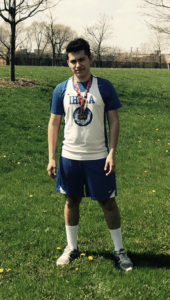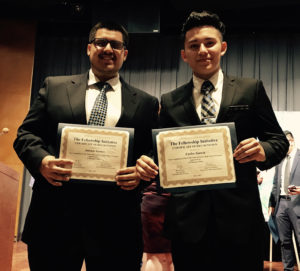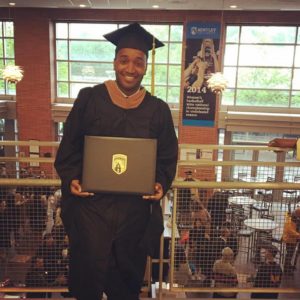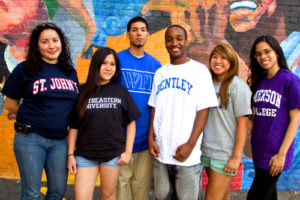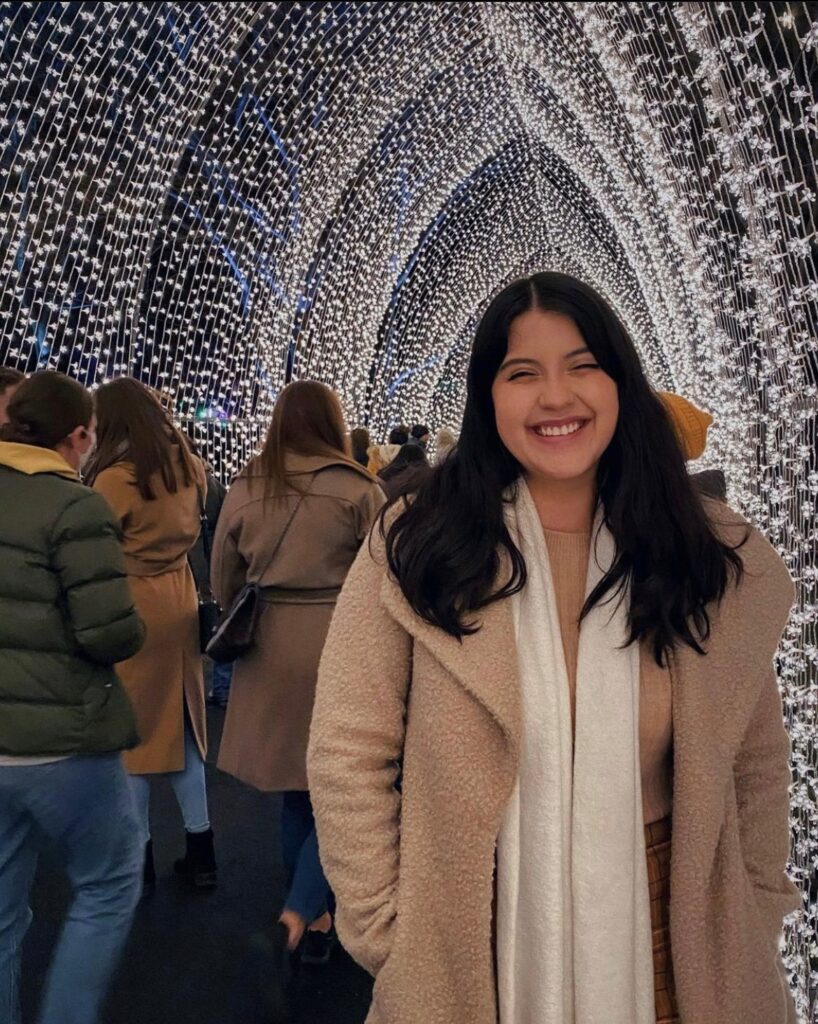
Lily, a fourth year at University of Illinois at Chicago, will be the first in her family to graduate both high school and college.
“Growing up, I had this close relationship with education,” she said, thinking back on her experiences. “My parents always told me how hardworking they were growing up. College shows all the hard work my parents have put in, and I want to honor that.”
Lily found out about Bottom Line through a friend in her junior year of high school. She was already involved in many extracurricular activities and looking for others to join.
“Bottom Line was by far the best application I could have submitted. The amount of opportunities I got through Bottom Line, I couldn’t have gotten alone. Bottom Line has been an incredible support system,” she said.
One of those opportunities was the Bottom Line externship program. An externship is a short-term, paid opportunity that allows undergraduate students to be exposed to a specific industry, role, and/or office environment. The goal is to provide students with relevant experiences to build career-related competencies, build professional networks, and become more competitive for future internships and post-college opportunities.
Lily first applied for a Bottom Line externship in 2020 as an opportunity to gain relevant experience for her medical school applications. In college, Lily already juggled two jobs alongside her coursework and a position within her sorority. With this schedule, it was hard to find research opportunities and other extracurriculars that fit with her interests. Bottom Line’s externship program provided a great opportunity for her to gain more experience in her field of study.
Lily applied for this opportunity, and worked with her Advisor to build up her interviewing skills, since she had not interviewed since high school. With the help of her Advisor, Lily also found other resources to help her prepare for the process.
“There are so many resources you can use to mock interview with yourself,” she shared.
She found sample interview questions and wrote down possible answers to ensure she’d be prepared in the interview itself. Her Advisor was also able to share resume and cover letter templates too.
Lily was placed in an externship with a local clinic. Unfortunately, before the start of the externship, the COVID-19 pandemic began. As universities, colleges, and workplaces across the country turned to remote work, the in-person opportunity she was looking forward to was no longer available.
While it was disappointing, Lily found other ways to take advantage of the transition.
“The pandemic forced me to take a break. It allowed me to dive back into school.”
With her jobs going remote or modifying their hours, Lily was able focus on even more on her school work. She received the best grades of her college career, even ending up on the Dean’s List.
A year later in spring 2021, Bottom Line offered new externship opportunities, and Lily decided to apply again. This time, she received an opportunity through Crown Family Philanthropies. This connected to her interest in philanthropy, something she learned from her parents.
“It was incredible. I met so many people in the span of 3 days.”
It was a fast-paced experience, and she got a chance to better understand the various roles in the organization. While not directly tied to the medical field that she plans to go into, Lily was able to gain valuable experience she plans to bring into her future work. She was particularly interested in a project that she worked on during her time there focused on diversity initiatives.
“Diversity has always been something that I look for in future workplaces. Starting the conversation is crucial, but I had never thought about what I could do in the workplace to make it more physical. That’s something I want to move forward with, finding ways to make the spaces I’m in more inclusive,” she shared.
Lily has a year and a half left until she graduates, and she’s already researching medical schools with her Advisor.
“I’ve had the same plan since high school. I love this path that I’m on.”
Lily’s goal is to earn her Bachelor’s in neuroscience and then go onto medical school or graduate school. Though she is still deciding what area she will focus on, she is interested in researching Alzheimer’s and other neurogenerative diseases, as well as studying neurology, surgery, and oncology.
